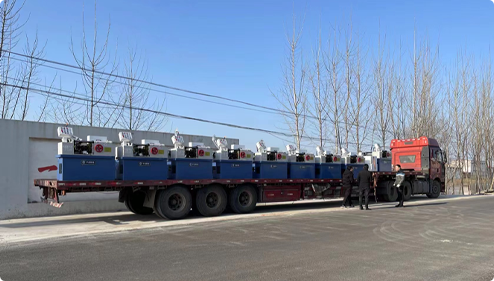
-
 Afrikaans
Afrikaans -
 Albanian
Albanian -
 Amharic
Amharic -
 Arabic
Arabic -
 Armenian
Armenian -
 Azerbaijani
Azerbaijani -
 Basque
Basque -
 Belarusian
Belarusian -
 Bengali
Bengali -
 Bosnian
Bosnian -
 Bulgarian
Bulgarian -
 Catalan
Catalan -
 Cebuano
Cebuano -
 Corsican
Corsican -
 Croatian
Croatian -
 Czech
Czech -
 Danish
Danish -
 Dutch
Dutch -
 English
English -
 Esperanto
Esperanto -
 Estonian
Estonian -
 Finnish
Finnish -
 French
French -
 Frisian
Frisian -
 Galician
Galician -
 Georgian
Georgian -
 German
German -
 Greek
Greek -
 Gujarati
Gujarati -
 Haitian Creole
Haitian Creole -
 hausa
hausa -
 hawaiian
hawaiian -
 Hebrew
Hebrew -
 Hindi
Hindi -
 Miao
Miao -
 Hungarian
Hungarian -
 Icelandic
Icelandic -
 igbo
igbo -
 Indonesian
Indonesian -
 irish
irish -
 Italian
Italian -
 Japanese
Japanese -
 Javanese
Javanese -
 Kannada
Kannada -
 kazakh
kazakh -
 Khmer
Khmer -
 Rwandese
Rwandese -
 Korean
Korean -
 Kurdish
Kurdish -
 Kyrgyz
Kyrgyz -
 Lao
Lao -
 Latin
Latin -
 Latvian
Latvian -
 Lithuanian
Lithuanian -
 Luxembourgish
Luxembourgish -
 Macedonian
Macedonian -
 Malgashi
Malgashi -
 Malay
Malay -
 Malayalam
Malayalam -
 Maltese
Maltese -
 Maori
Maori -
 Marathi
Marathi -
 Mongolian
Mongolian -
 Myanmar
Myanmar -
 Nepali
Nepali -
 Norwegian
Norwegian -
 Norwegian
Norwegian -
 Occitan
Occitan -
 Pashto
Pashto -
 Persian
Persian -
 Polish
Polish -
 Portuguese
Portuguese -
 Punjabi
Punjabi -
 Romanian
Romanian -
 Russian
Russian -
 Samoan
Samoan -
 Scottish Gaelic
Scottish Gaelic -
 Serbian
Serbian -
 Sesotho
Sesotho -
 Shona
Shona -
 Sindhi
Sindhi -
 Sinhala
Sinhala -
 Slovak
Slovak -
 Slovenian
Slovenian -
 Somali
Somali -
 Spanish
Spanish -
 Sundanese
Sundanese -
 Swahili
Swahili -
 Swedish
Swedish -
 Tagalog
Tagalog -
 Tajik
Tajik -
 Tamil
Tamil -
 Tatar
Tatar -
 Telugu
Telugu -
 Thai
Thai -
 Turkish
Turkish -
 Turkmen
Turkmen -
 Ukrainian
Ukrainian -
 Urdu
Urdu -
 Uighur
Uighur -
 Uzbek
Uzbek -
 Vietnamese
Vietnamese -
 Welsh
Welsh -
 Bantu
Bantu -
 Yiddish
Yiddish -
 Yoruba
Yoruba -
 Zulu
Zulu
Custom Thread Rolling Machine Cost and Features Comparison Guide
Understanding the Pricing of Custom Thread Rolling Machines
Thread rolling machines are essential tools in various manufacturing sectors, particularly those involved in producing fasteners, bolts, and screws. As industries look to enhance their production efficiency and product quality, the demand for custom thread rolling machines has risen. However, potential buyers often find themselves questioning how pricing works for these specialized machines. This article delves into the factors that influence the price of custom thread rolling machines and provides insights into what businesses can expect.
Factors Influencing Pricing
1. Machine Specifications The complexity and capabilities of a thread rolling machine significantly affect its price. Machines with advanced features, such as automatic feeding mechanisms, enhanced precision controls, and capability for rolling different thread forms, will typically come with a higher price tag. Customization, in terms of the size of the machine, the material it can process, and its production speed, will also contribute to the overall cost.
2. Material Quality The materials used in constructing a thread rolling machine are crucial for its performance and longevity. High-quality, durable materials that can withstand the rigors of industrial use will fetch a higher price. Additionally, the technology used in manufacturing the machine, such as CNC (Computer Numerical Control) technology, can elevate production costs and, consequently, the price for the end user.
3. Brand Reputation Established brands that are known for reliability and innovation may charge a premium for their machines. Companies often prefer to invest in reputable brands as this can lead to lower maintenance costs and better after-sales service. However, newer brands may offer competitive pricing to capture market share, providing businesses with more options.
custom thread rolling machine price

4. Customization Level Custom thread rolling machines tailored to specific production needs often come at an elevated price. The design process, which involves close collaboration between the manufacturer and the customer, requires significant engineering expertise and time. As a result, the more tailored the machine, the higher the cost will be.
5. Production Scale The scale of production can also influence pricing. Companies that require larger quantities of thread rolling machines may negotiate better prices through bulk purchasing. Additionally, custom machines intended for high-volume production runs may be more economically priced when compared to those meant for small-scale operations, as the return on investment is more favorable for larger volumes.
Market Trends
The market for custom thread rolling machines is evolving, influenced by technological advancements and changing industry demands. Automation and digital integration are becoming increasingly important, leading to the development of smarter machines that can integrate with existing production lines. As companies seek to streamline operations, the initial investment in advanced thread rolling machines is often seen as a worthwhile expense that can lead to long-term savings.
Conclusion
In understanding the price of custom thread rolling machines, businesses must consider various factors, including machine specifications, material quality, brand reputation, customization, and production scale. As the industry moves towards automation and enhanced efficiency, investing in high-quality thread rolling machines can pay off significantly in terms of productivity and quality assurance. It is essential for businesses to conduct thorough research and engage with manufacturers to determine the best options that cater to their unique processes and budgets. Ultimately, the right thread rolling machine can be a substantial asset in a company’s manufacturing arsenal, driving growth and increasing competitiveness in the market.
